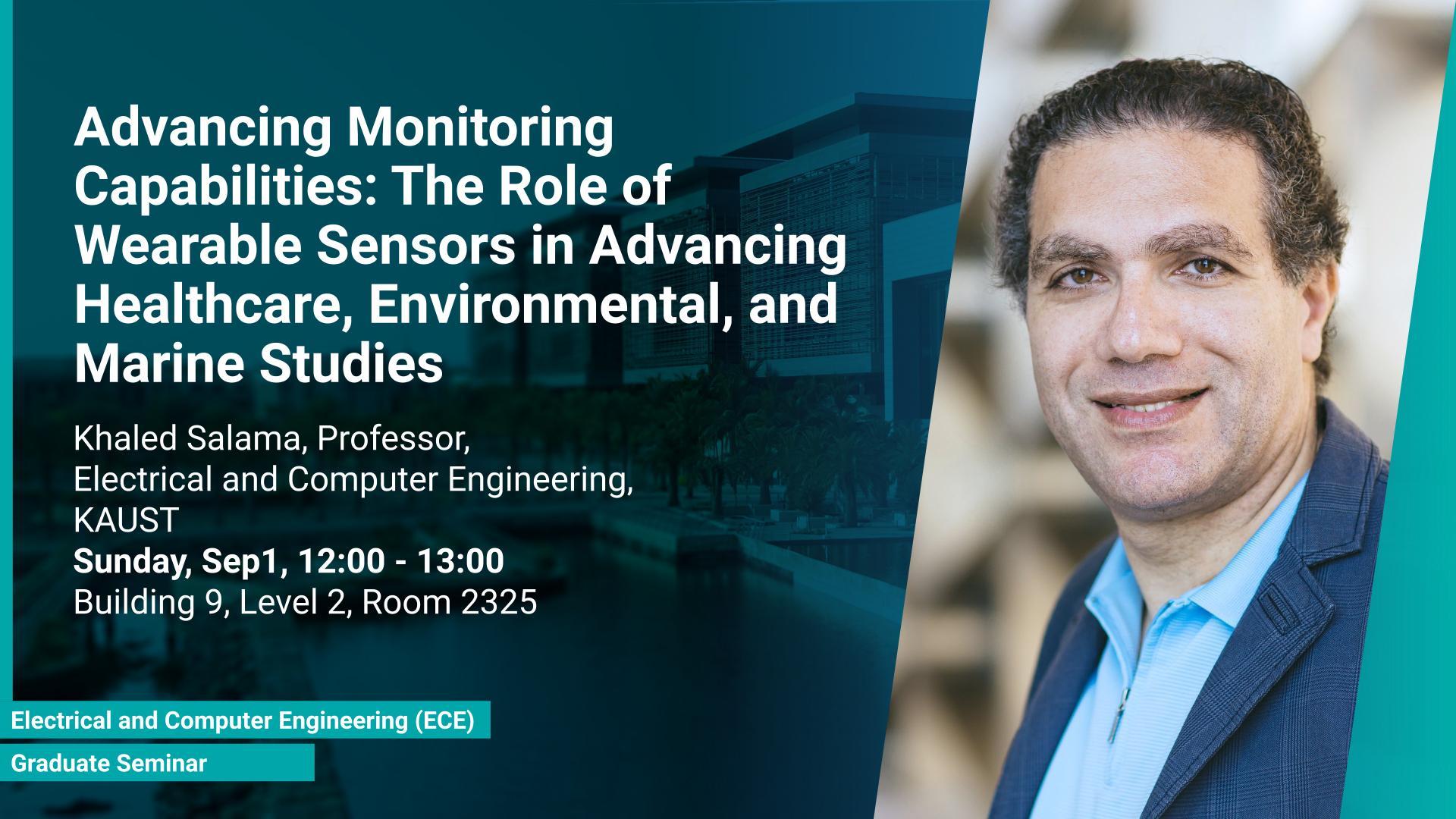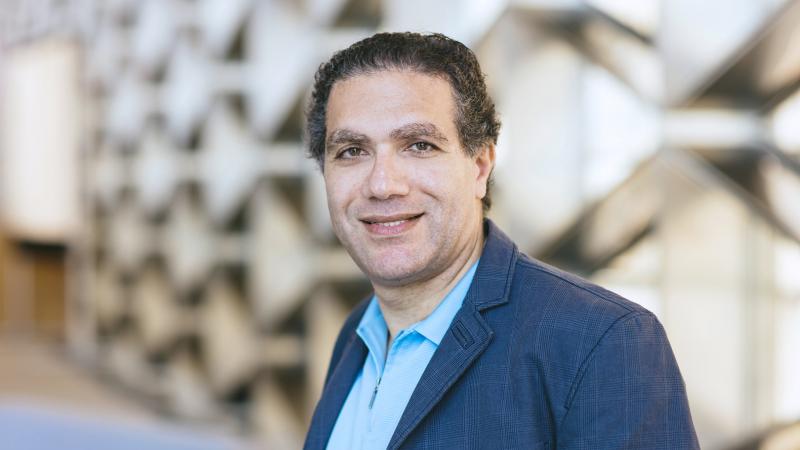Event Start
Event End
Location
Abstract
This seminar examines the transformative impact of wearable sensor technologies across healthcare, environmental monitoring, and marine biology. In healthcare, these sensors enable continuous monitoring for enhanced patient care and disease management. Environmental applications range from real-time pollution monitoring to ecosystem management, while in marine biology, wearable sensors facilitate non-invasive studies of aquatic life. The discussion will highlight technological advancements in sensor miniaturization and energy efficiency, emphasizing the critical role of interdisciplinary collaboration in optimizing wearable technologies for diverse applications.
Brief Biography
Professor Khaled Nabil Salama serves as a professor of electrical and computer engineering. He earned his bachelor's degree with honors from Cairo University in 1997 and later completed his master's and doctoral degrees at Stanford University in 2000 and 2005, respectively. His early academic career included a position as an assistant professor at Rensselaer Polytechnic Institute before joining KAUST in 2009, where he was the founding program chair for Electrical Engineering until 2011. Professor Salama's research is highly interdisciplinary, focusing on the development of devices, circuits, systems, and algorithms to facilitate inexpensive analytical platforms for industrial, environmental, and biomedical applications. He has made significant contributions to the field of low-power mixed-signal circuits for intelligent sensors and integrated biosensors. His work also extends into VLSI architectures for bio-imaging and instrumentation. More recently, he has been involved in pioneering neuromorphic circuits aimed at emulating brain functions. His scholarly output includes over 400 papers and 48 patents.


